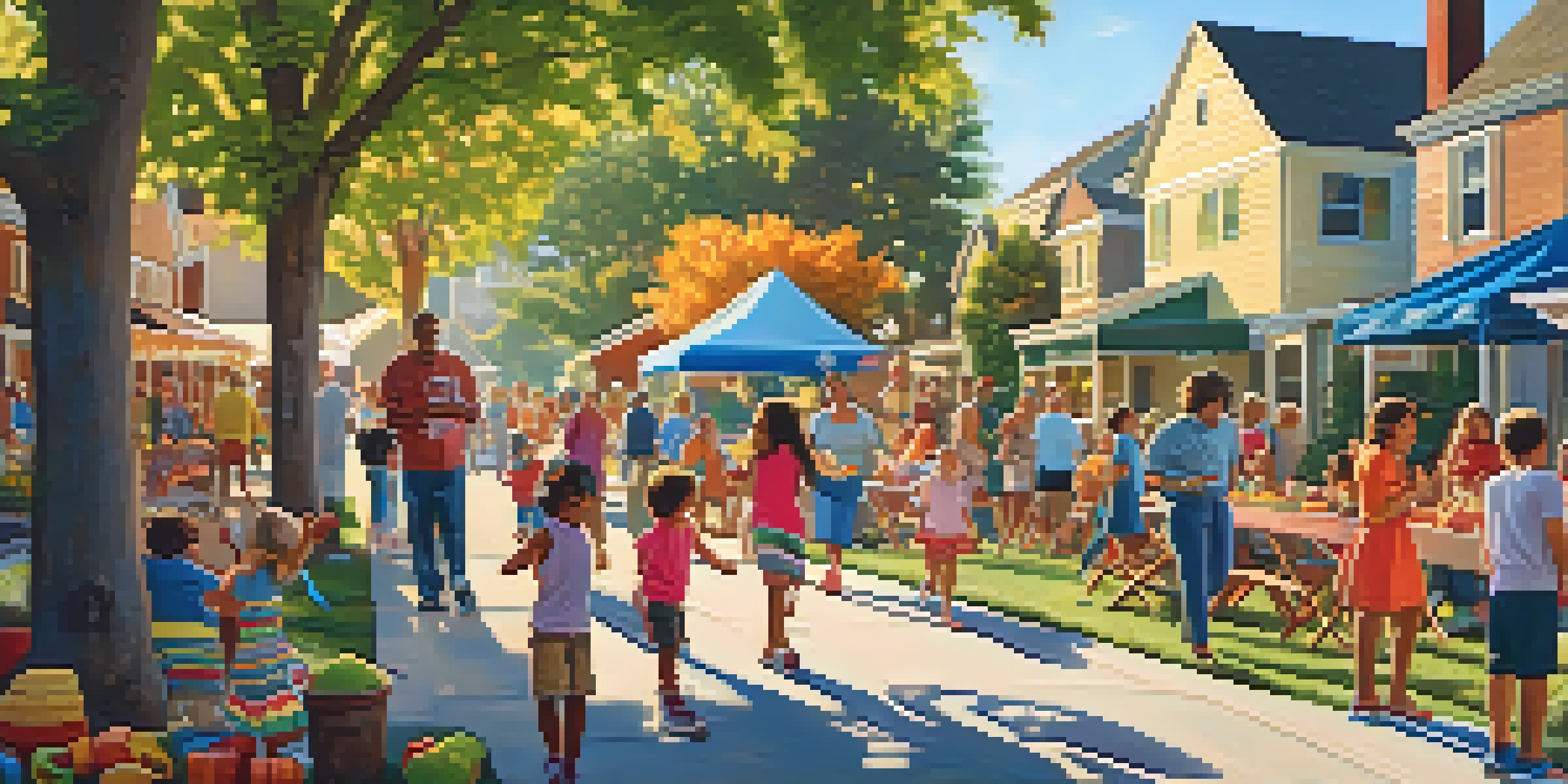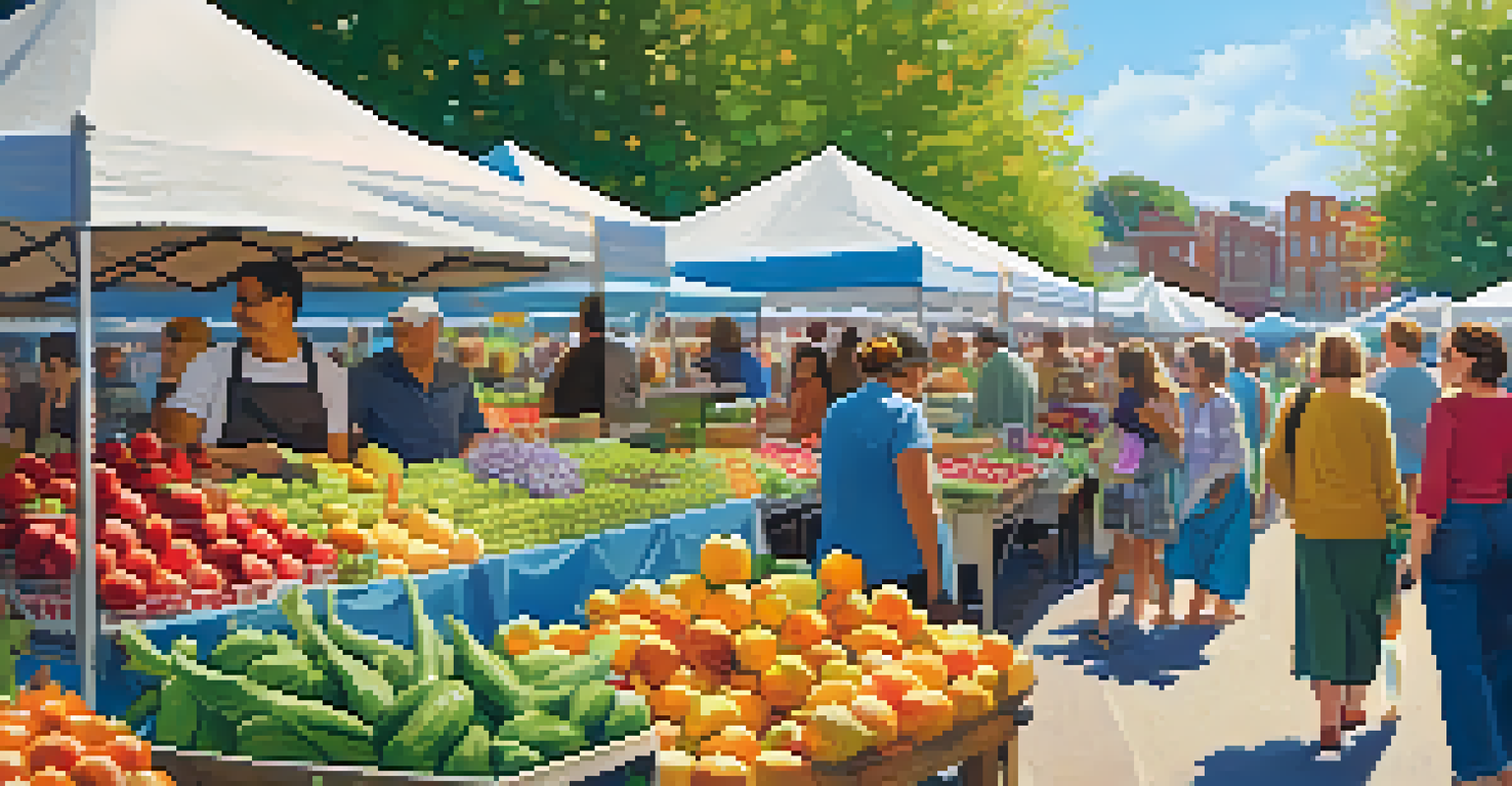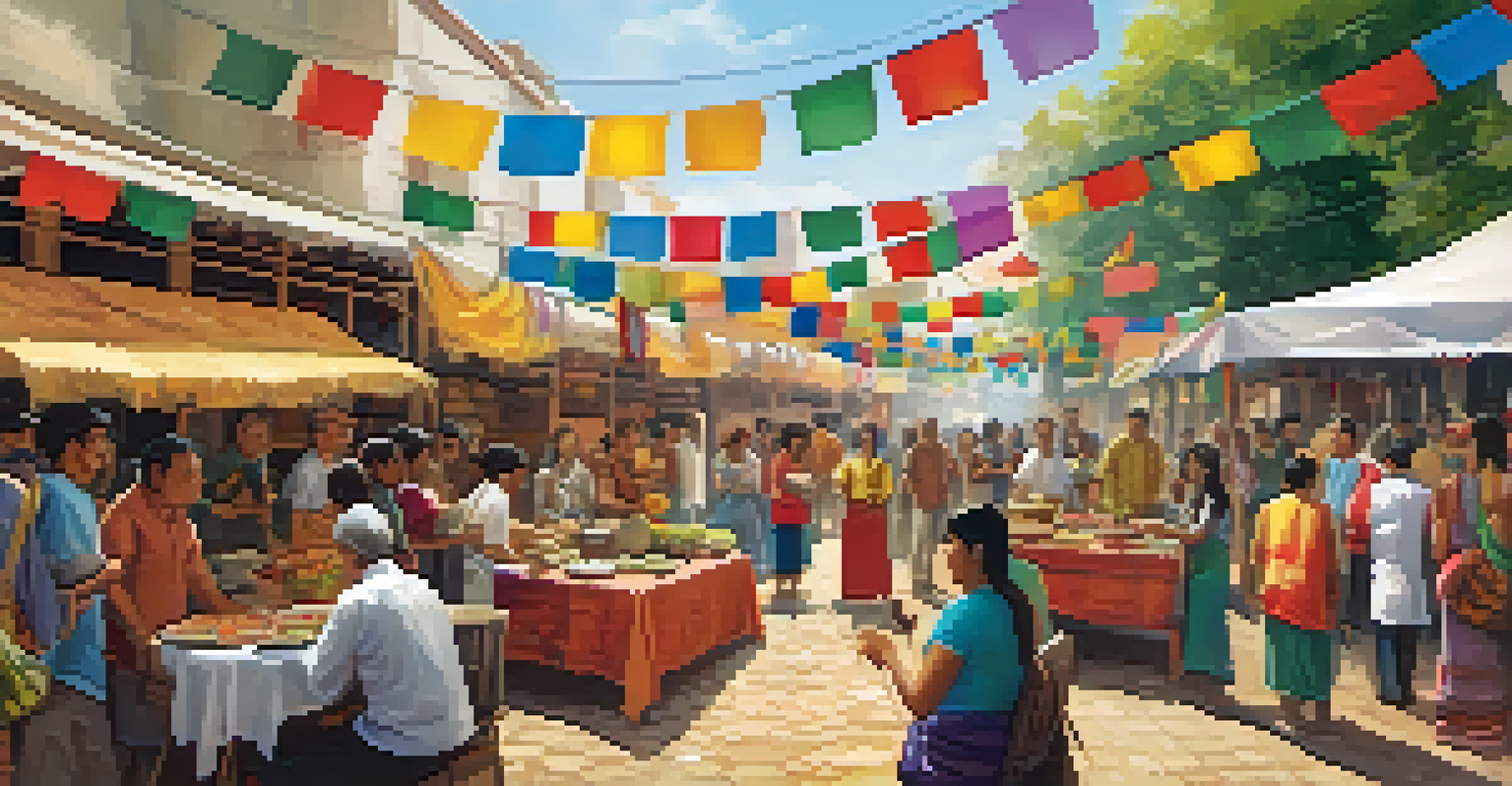Connecting Neighbors: The Importance of Community Events

Understanding the Role of Community Events
Community events serve as a bridge, connecting individuals in a shared space. They provide opportunities for neighbors to meet, socialize, and build relationships. Think of these gatherings as the glue that holds a community together, fostering a sense of belonging.
Alone we can do so little; together we can do so much.
Whether it’s a block party, a farmers market, or a holiday celebration, these events offer a platform for people to come together. They encourage participation and engagement, making the community vibrant and alive. The simple act of sharing food, activities, or stories can spark lasting connections.
Moreover, community events can help in breaking down barriers. They allow people from different backgrounds to interact, promoting understanding and acceptance. In a world that often feels divided, these gatherings remind us of our shared humanity.
Building Stronger Neighborhood Ties
When neighbors interact at community events, they create stronger social networks. These networks can be invaluable during times of need, such as when someone requires assistance or support. It’s like having a built-in safety net right in your neighborhood.

For instance, imagine a neighbor who is unwell. A tight-knit community can rally around them, providing meals or check-ins. This kind of support system not only helps individuals but also fosters a spirit of camaraderie among residents.
Community Events Foster Connection
These gatherings help build relationships and a sense of belonging among residents.
In essence, the bonds formed at community events can lead to lasting friendships. These connections enhance the quality of life, making neighborhoods more enjoyable and enriching for everyone involved.
Encouraging Local Participation and Volunteerism
Community events often rely on volunteers, which encourages local participation. When residents take an active role in organizing or contributing to events, they develop a sense of ownership over their community. This involvement can lead to greater pride and responsibility toward local issues.
The greatness of a community is most accurately measured by the compassionate actions of its members.
Consider a neighborhood clean-up day. Residents come together not just to beautify their surroundings but also to collaborate on a common goal. This shared effort can inspire ongoing volunteerism, leading to more community-driven initiatives.
As more people become engaged, they are likely to participate in future events, creating a positive feedback loop. This cycle strengthens community bonds and fosters a culture of collaboration and support.
Creating a Sense of Belonging
Community events play a crucial role in fostering a sense of belonging among residents. When people feel connected to their neighbors, they are more likely to invest in their community. This investment can manifest in many ways, from attending events to advocating for local improvements.
For example, a neighborhood picnic can help newcomers feel included. When they see friendly faces and have the chance to engage in conversations, it can transform their feeling of isolation into one of community belonging.
Support for Local Businesses
Community events highlight local vendors, boosting the economy and community pride.
Ultimately, a strong sense of belonging can lead to a happier, healthier population. When people feel they are part of something larger than themselves, they are more likely to contribute positively to their surroundings.
Promoting Local Businesses through Events
Community events are also a great way to spotlight local businesses. By featuring local vendors or services, these gatherings can drive traffic to small enterprises. This not only helps boost the local economy but also fosters a sense of pride in the community’s unique offerings.
Imagine a local fair where artisans showcase their crafts. Attendees not only enjoy the event but also support their neighbors by purchasing handmade items. This kind of interaction benefits everyone involved, from the vendors to the customers.
Furthermore, these events can encourage collaboration among businesses. Local partnerships can flourish, resulting in creative promotions and shared resources that strengthen the community even further.
Encouraging Inclusivity and Diversity
Community events have the potential to celebrate diversity and promote inclusivity. They can be designed to welcome individuals from all walks of life, allowing everyone to share their culture and traditions. This celebration of diversity enriches the community as a whole.
For example, a cultural festival can showcase different cuisines, music, and art forms. Such events provide space for dialogue and understanding, breaking down stereotypes and building bridges between different groups.
Enhancing Safety Through Familiarity
Neighbors who interact at events are more likely to look out for each other, improving safety.
By fostering inclusivity, communities become more resilient and adaptable. Diverse perspectives can lead to innovative solutions for local challenges, making the community stronger overall.
Enhancing Community Safety and Support
When neighbors know each other through community events, safety naturally improves. Familiarity breeds trust, and when residents feel comfortable with one another, they are more likely to look out for each other. This vigilance can deter crime and promote a safer environment.
Imagine a neighborhood watch program that emerges from connections made at local gatherings. Residents who know each other are more likely to communicate effectively about safety concerns and work together to address them.

In addition, a strong community network can provide support during emergencies. Whether it’s organizing a collective response or simply checking in on one another, the connections formed through events can enhance community resilience.
Conclusion: The Lasting Impact of Community Events
In summary, community events are vital for connecting neighbors and strengthening community ties. They create opportunities for social interaction, promote local businesses, and enhance safety and inclusivity. The impact of these gatherings extends far beyond a single day, leaving lasting impressions on residents.
By participating in or organizing community events, individuals play a crucial role in shaping the neighborhood’s culture and spirit. Every picnic, festival, or meeting adds to the rich tapestry of community life.
Ultimately, embracing and nurturing these events can lead to happier, healthier, and more connected communities. Let’s celebrate the importance of community events and the connections they foster among us.